9 Mistakes You’re Making That Are Increasing Your Heating Bill, Experts Say

Depending on where you live, winter can begin an expensive spike in your bills as your furnace returns to heat your home. Unfortunately, harsher conditions and an early start to the season this year means you could be paying even more than usual, CBS News reports. But just because the temperature outside is dropping doesn’t mean your bank account has to. You can save money by making a few simple changes around the house—all while staying nice and warm. Read on for the mistakes you’re making that are increasing your heating bill, according to experts.
RELATED: 10 Mistakes You’re Making That Keep Your House Cold, Experts Say.
1
You’re blocking out too much natural light.
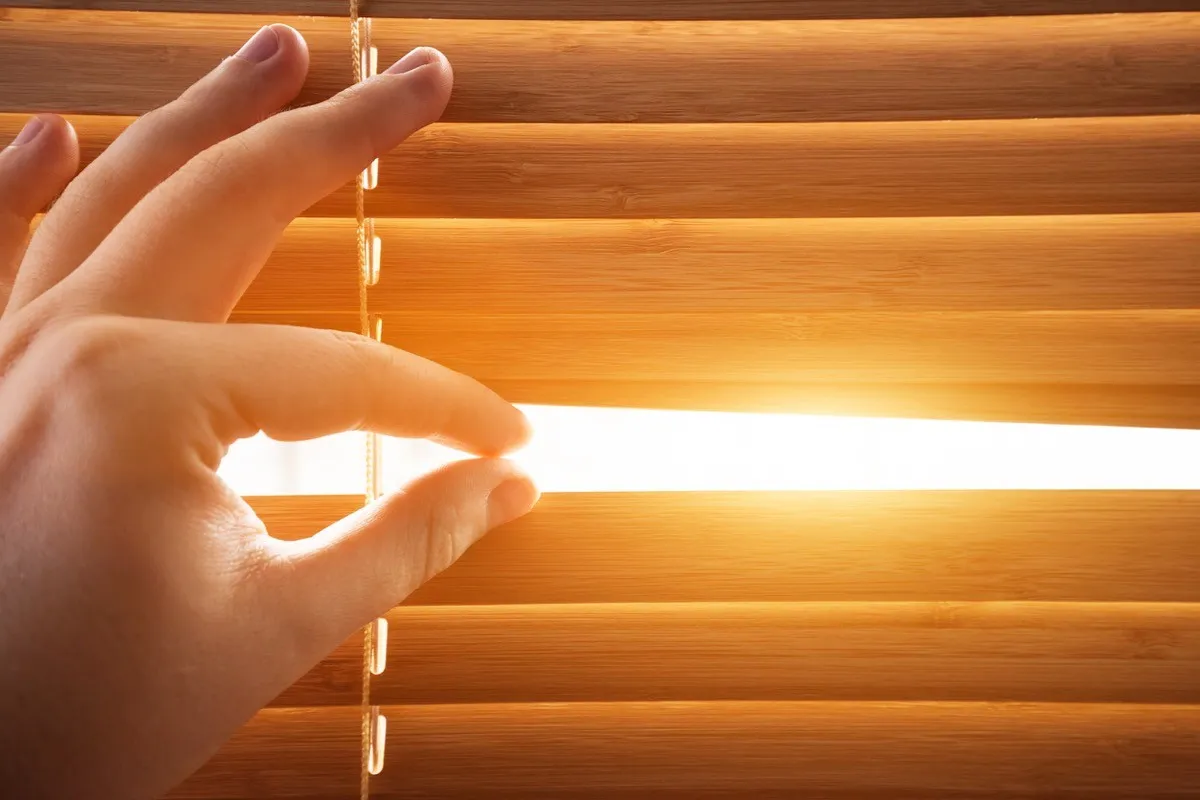
The sun that shines during the short days of winter may not make it feel anywhere near as warm as it gets in other seasons. But experts say even those precious few rays that pour into your home can take some of the load off your heating system—which translates directly into savings.
“You may not realize it, but if you have a house that gets filled with sun during the winter months, you would be able to benefit from the concept of solar gain,” says Ryan Meagher of residential construction company BVM Contracting.
“In simple terms, the more sun you can let into your home, the warmer your home will get without having to rely on your heating source,” he explains. “So open up those curtains and make sure you let as much light in as you can to reduce your overall heating bills!”
2
You’re not changing your furnace filter.
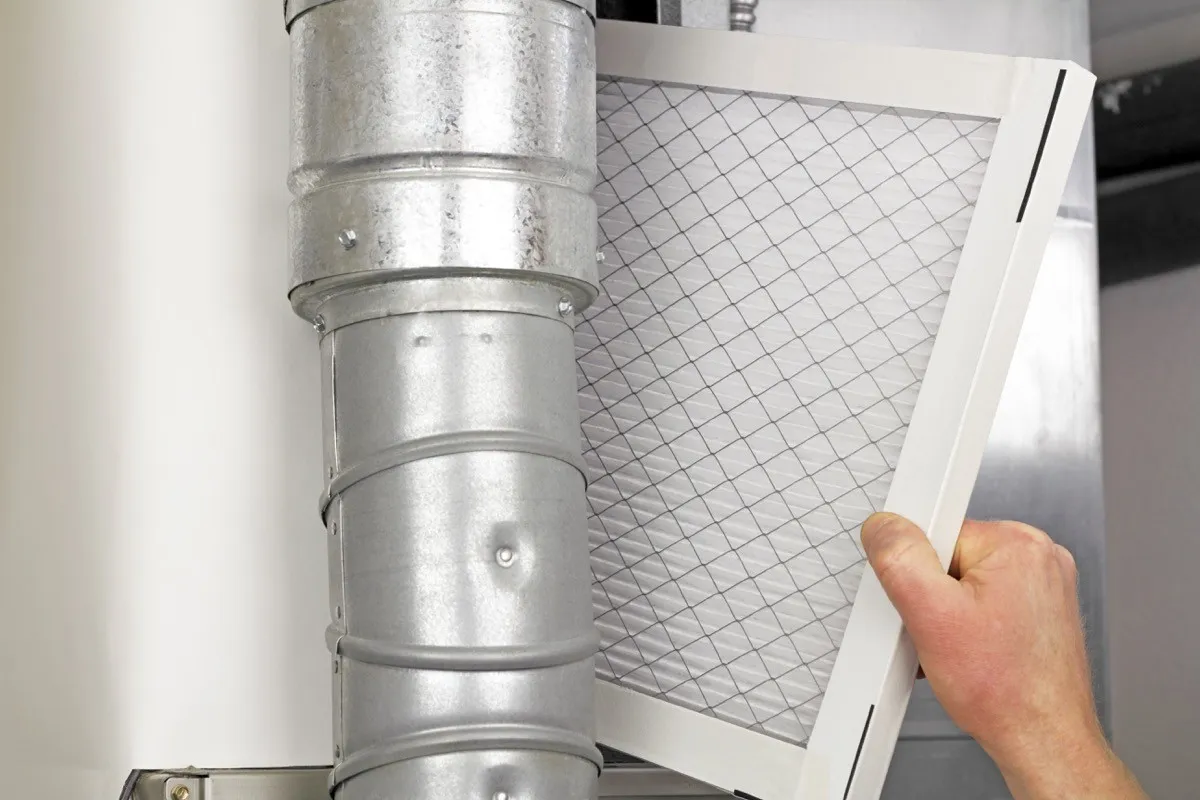
Your home heating system would be nothing without its primary power source: Just ask anyone who’s suffered a furnace breakdown in the dead of winter. But experts warn that you could be racking up some seriously high energy costs if you’re not performing the most basic maintenance on this essential appliance.
“One of the most common mistakes people make when it comes to their heating bills is not changing the furnace filter regularly,” says Shaun Martin, owner and CEO of Denver-based The Home Buying Company. “It’s important to replace your furnace filter every three months, or as recommended by the manufacturer, in order to keep your heater running efficiently. A clogged filter can restrict airflow and cause your furnace to work harder, leading to a higher energy bill.”
3
Your thermostat is in the wrong place.
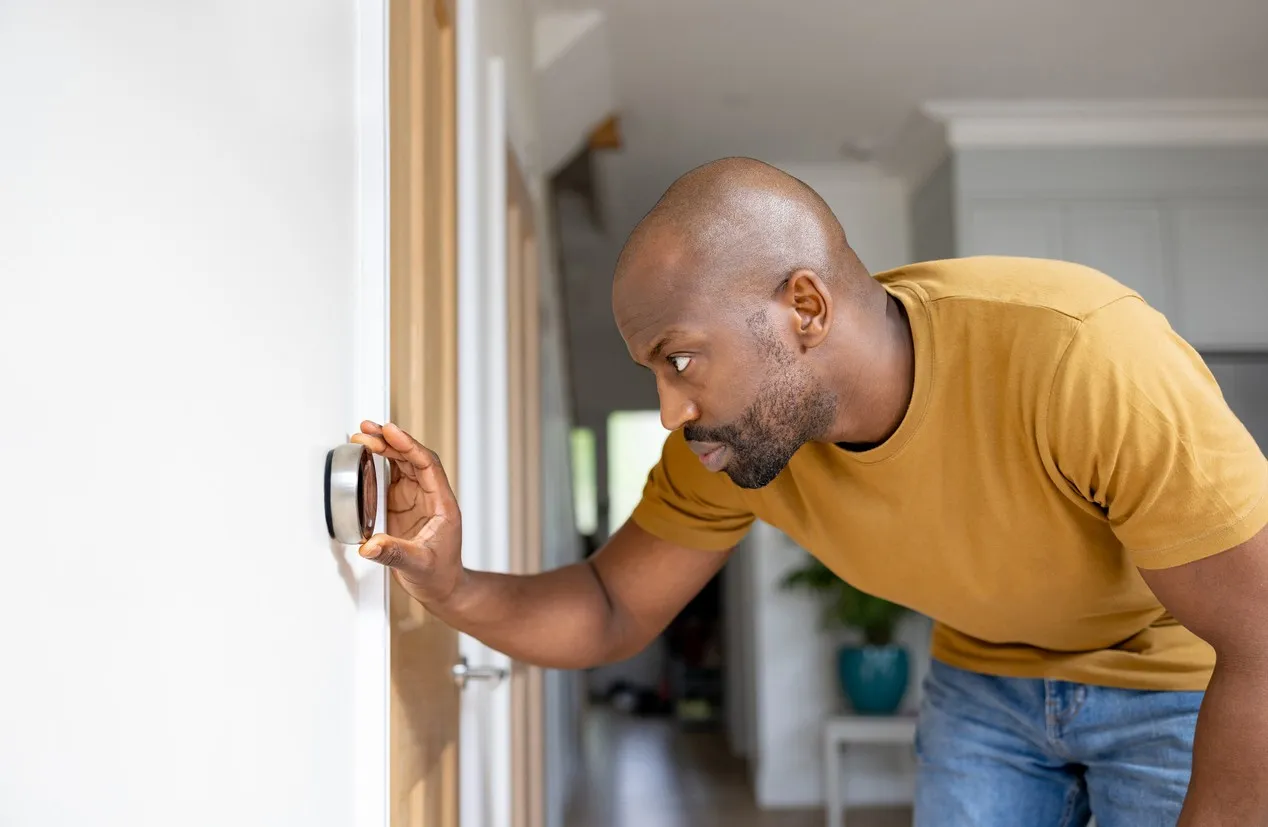
A centrally located thermostat may have been par for the course years ago when constant fidgeting with the dial was necessary to avoid over or undergoing it with the heat. But if that convenient spot happens to be in a room that’s larger, near a drafty entryway, or too far from heaters, it could be driving up your energy costs, according to Wisconisn-based Wulf Brothers HVAC services company.
Ideally, your thermostat should be located near the center of your home and far away from windows or doors—as well as hot spots like ovens or fireplaces. It’s also best to avoid any spot that might get hit with direct sunlight throughout the day.
If moving your current thermostat’s location makes it less accessible, consider switching to a modern model that allows you to control it from your smartphone.
RELATED: Property Brothers Warn Against 4 Popular Home Trends “You Need to Stop.”
4
You’re using the wrong kind of thermostat.
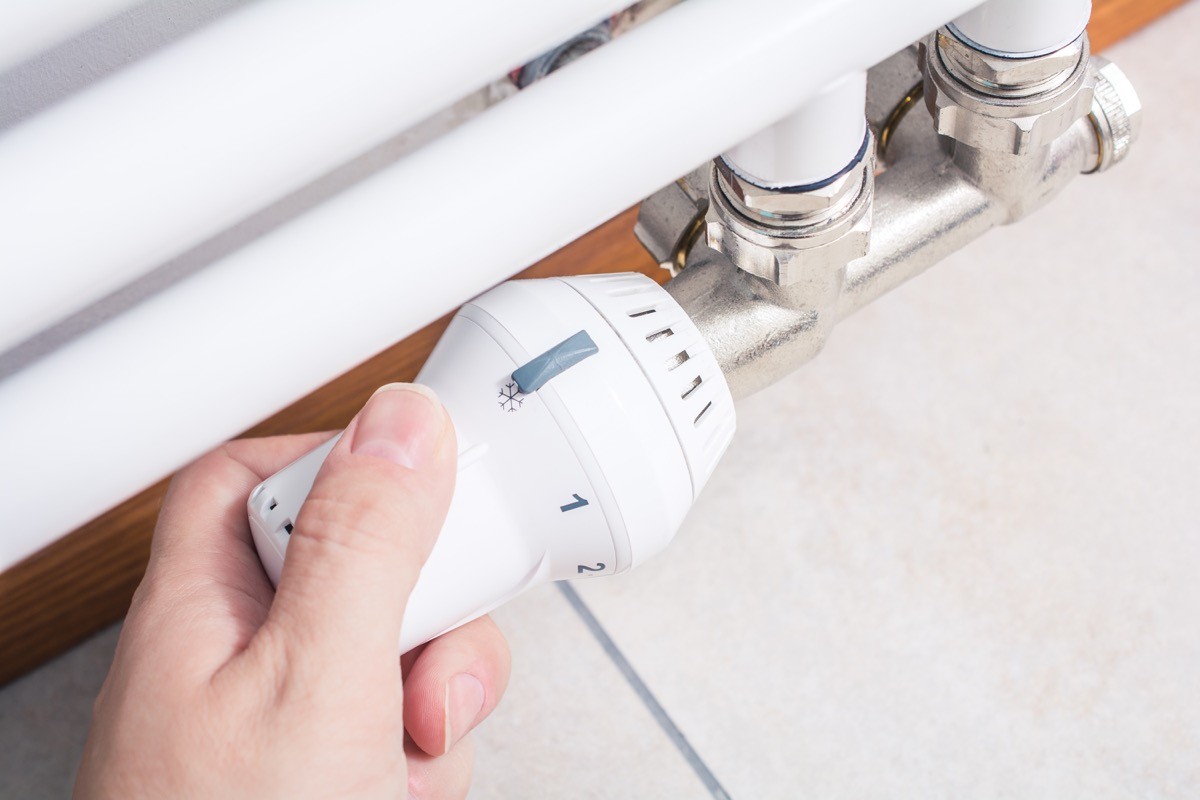
Whether you’re working with a fixer-upper or renting a unit that leaves a little to be desired in the heating department, it’s not always easy to devise a setup that keeps you warm. But if you’re looking to save money, experts say it can be best to get everything working on the same finely-tuned system to prevent waste.
“The more heating appliances you use and the manner and the longer you use them can spike your energy bills,” says Robert Johnson, marketing director for Coast Appliances.
“For instance, not using a programmable thermostat or a thermostat that lacks correct calibration can turn on the electric heater at unnecessary times,” he explains. “This significantly increases your electricity expenditure because the thermostat overcompensates and consumes more energy than you need.”
5
You’re burning heat when you’re not around.
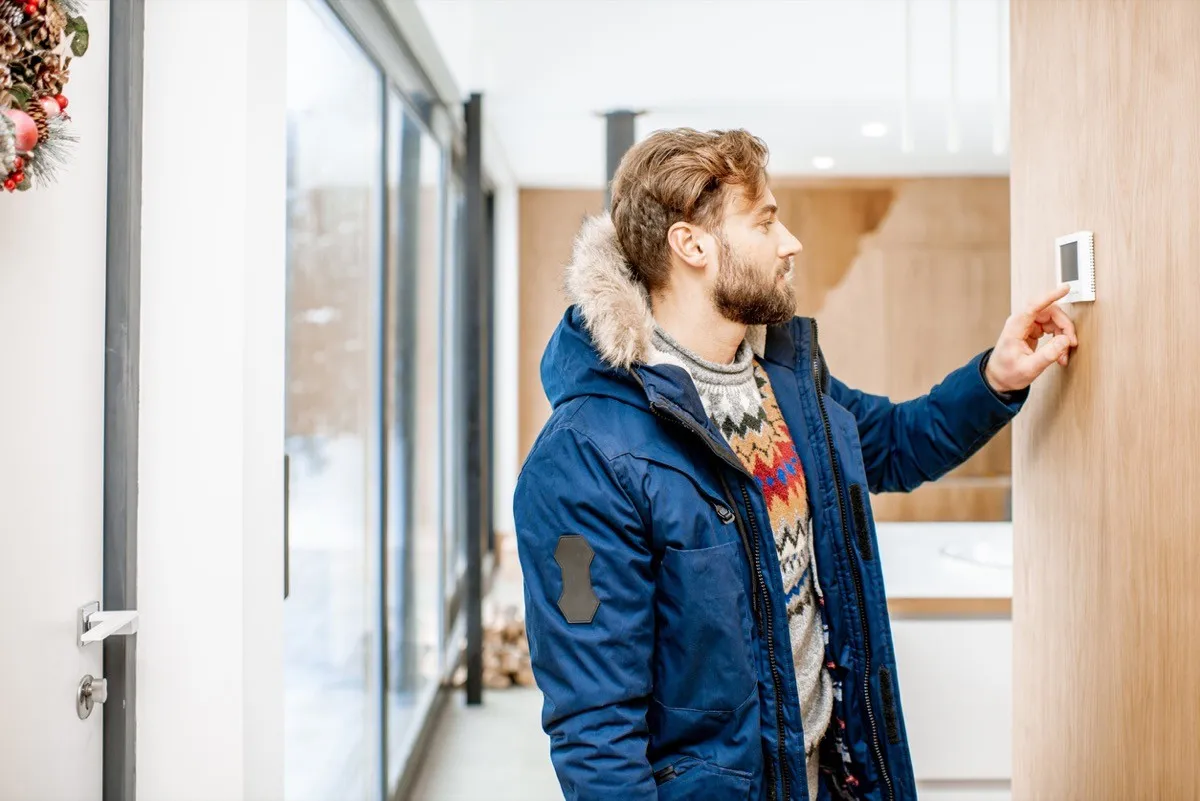
When the first sign of cold weather hits, it can be easy to “set it and forget it” with your home’s thermostat. But running the heat too high when you’re not around is one of the easiest ways to waste serious money.
“No matter the type of thermostat you have—whether it is smart, programmable, or prehistoric—you would benefit from lowering the temperature of your home while you are away for prolonged periods of time, such as during your work day, weekend getaway, or longer vacation,” says Meagher. “As long as you keep your house above freezing, you should be fine, but it would be recommended to keep the temperature above 60 degrees for good measure.”
In this case, upgrading your current heating setup might be worthwhile. “If you have a smart thermostat, you can change your home’s temperature setpoint remotely and can create schedules for lowering the setpoint while you are away from home or asleep. The overall goal is to get the average temperature down, so your home’s heating source is doing less work and inevitably using less energy,” Meagher says.
And what about when you’re home during the day? Martin suggests avoiding the temptation to set the temperature sky high: “Make sure to set your thermostat no higher than 68 degrees during the winter months to get the most out of your heating system.”
6
You’re leaving your windows unlocked.
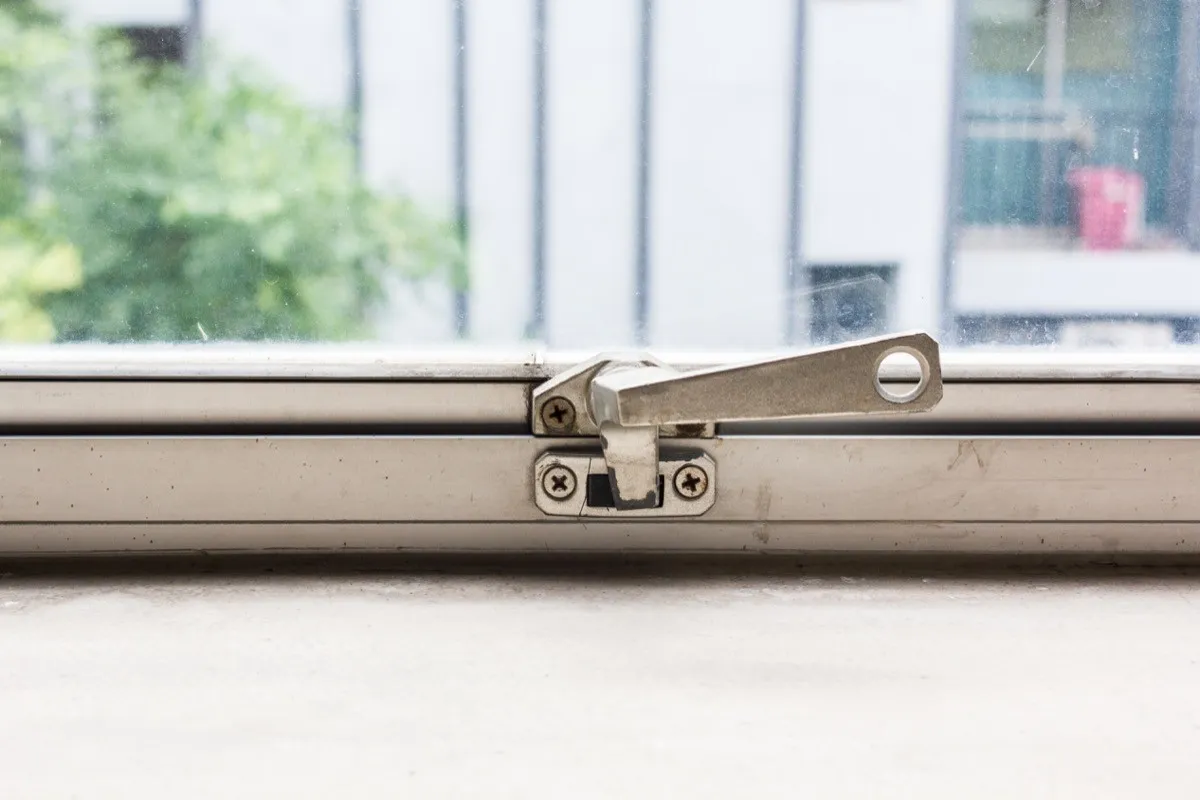
That simple little latch on your window that keeps it from opening isn’t just for security. Securing the lock on your window is actually the best way to ensure they’re fully sealed, preventing any pesky drafts from making their way in, according to BobVilla.com. And even if you think you’re sure everything is battened up tight, it can help to set a calendar reminder each season to perform a top-to-bottom check in your house.
RELATED: 5 Home Upgrades That Could Hurt Your Property Value, Experts Warn.
7
Your water heater is running too hot.
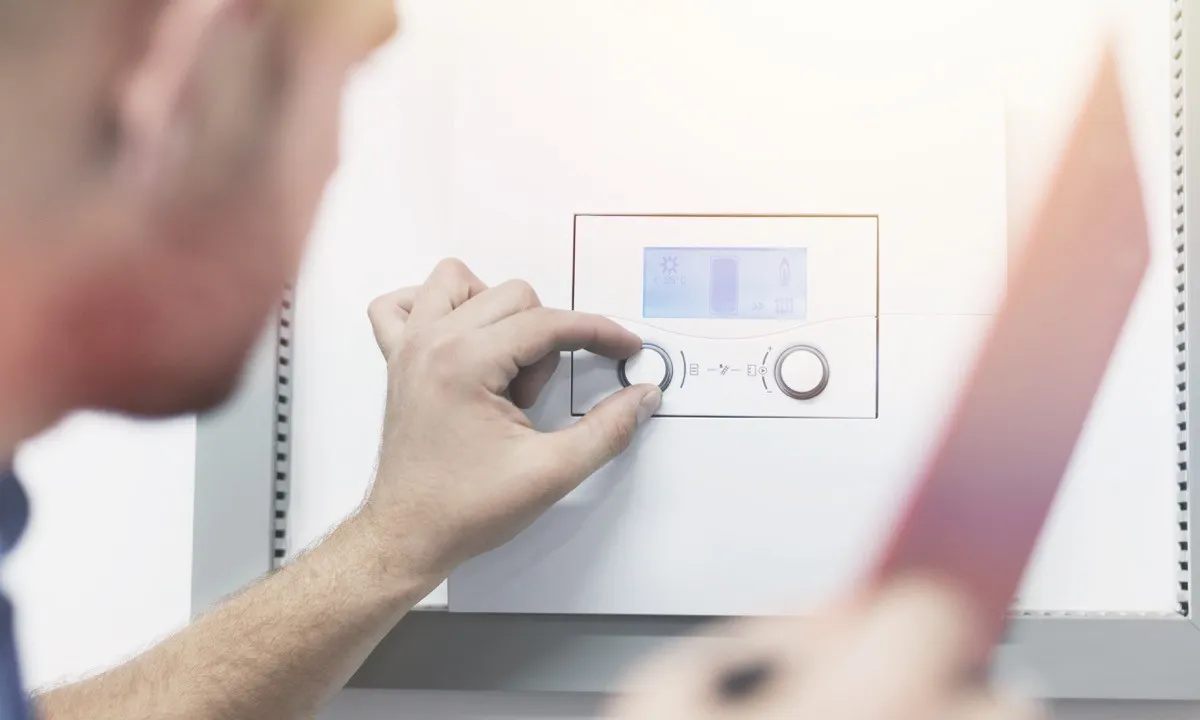
It can be easy to forget that energy costs aren’t just tied to heating your rooms. Your home’s water heater is also struggling to keep a considerable amount of liquid at high temperatures, making it an equally costly appliance to run during winter.
“Setting the water heater temperature too high, or 120 degrees Fahrenheit and above, is another mistake many people make,” warns Johnson. “It can cause standby heat losses or heat loss into the surrounding basement area, equivalent to $30 to $60 per year.”
8
Your entryways are letting in a draft.

A gust of freezing air from an open door can be one of the fastest ways to drop your home’s temperature in the winter. But if you’re not staying on top of some basic home repairs, they could be providing a constant draft even when they’re closed, which will keep your heaters working overtime and wind up costing you more.
“If you can feel cold air coming through your doorway during the cold winter months, chances are you need to replace the weather stripping,” says Meagher. “This is an easy DIY job that many homeowners would be able to complete—just make a trip to your nearest hardware store with pictures of your existing weather stripping, and they will be able to help you out! And it’s one of the easiest and fastest ways to help you reduce your heating bills by preventing the warm air from escaping from your home.”
9
You’re letting certain areas of your home get too cold.
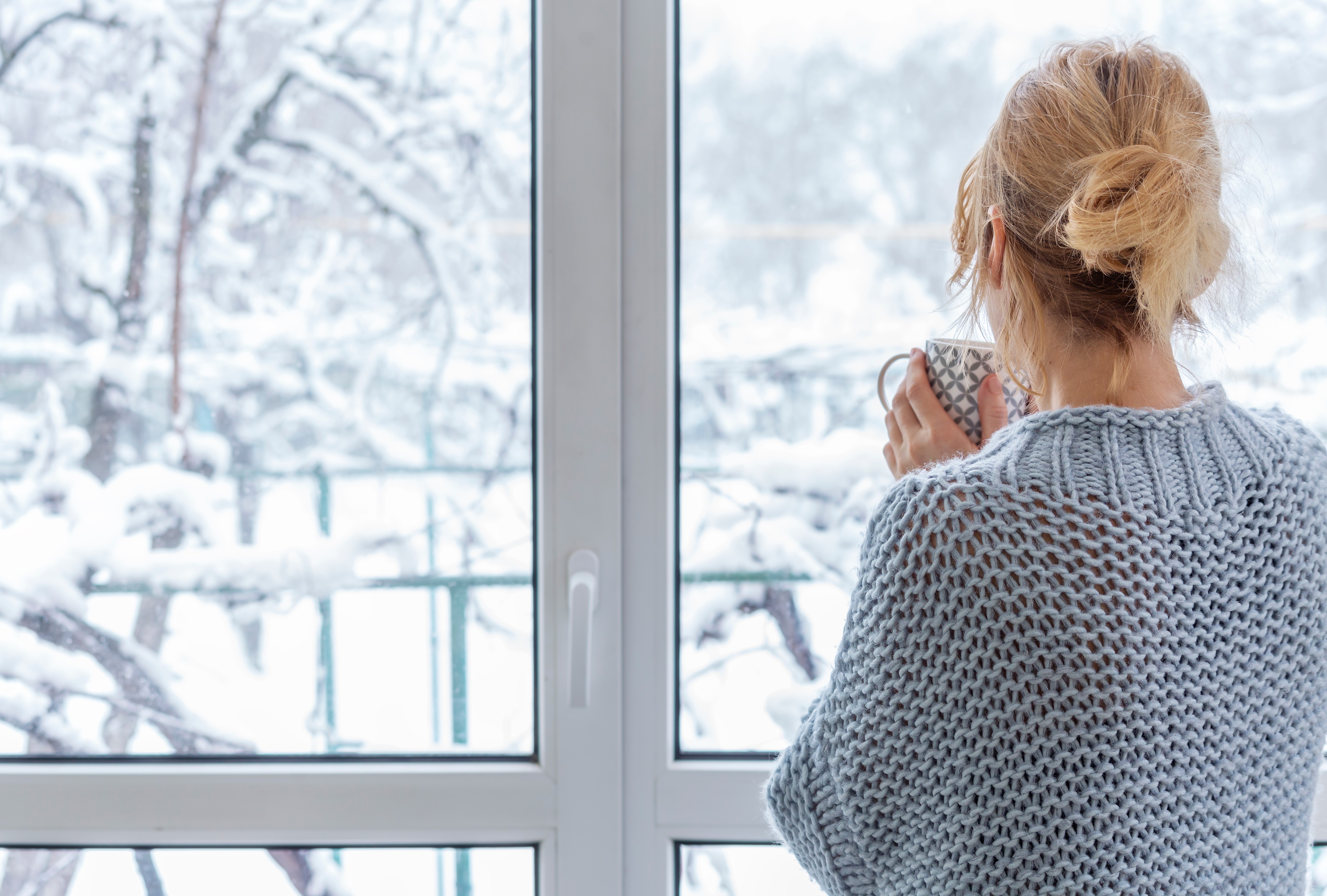
Unfortunately, it’s not just your doorways that can let in the outside air.
“If your attic, crawlspace, or garage isn’t properly insulated, your heating system has to work harder to keep the home at a consistent temperature,” Brian and Mika Kleinschmidt, stars of HGTV’s 100 Day Dream Home and partners with American Standard Heating and Air Conditioning, told Best Life in an email.
“Basically, the harder your HVAC system works, the more it costs you,” they explain. “If you live in a colder climate where temperatures can go below 32 degrees Fahrenheit, we recommend adding an extra layer of insulation to your garage door, as it can make a big difference in improving your home’s envelope and keeping the warm air [in] while keeping the cold air out.”